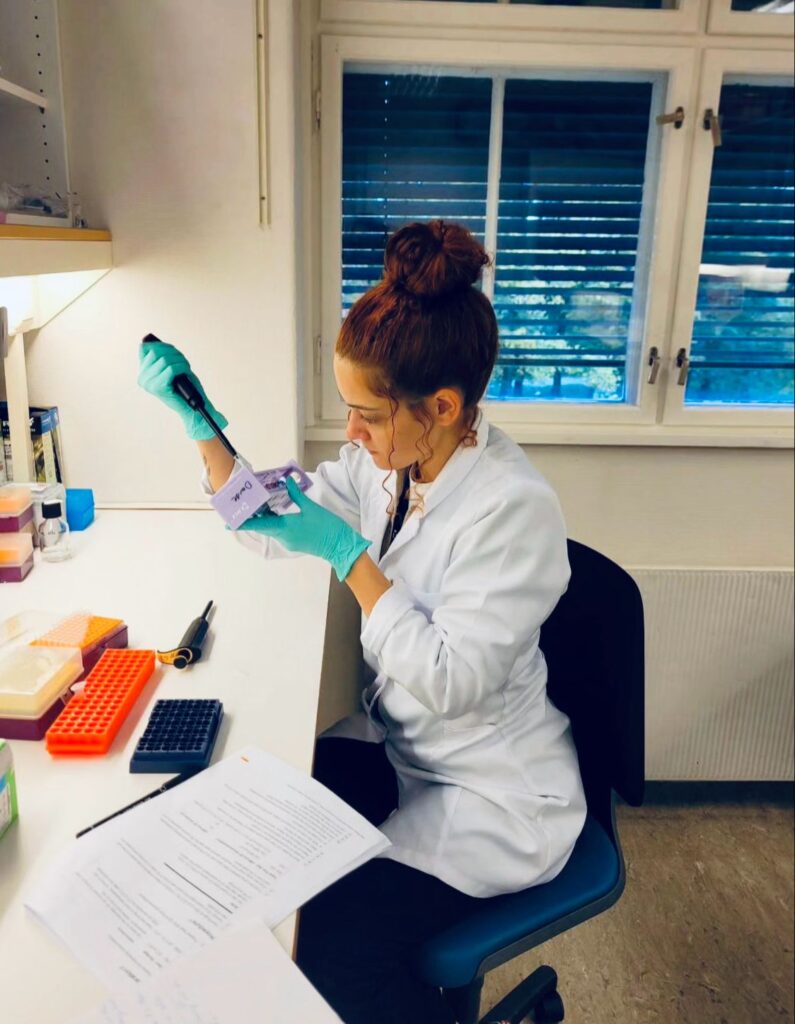PhD student Paloma Cunha is back in Brazil after six months working at the Norwegian University of Life Sciences in Norway. In Europe, the researcher was welcomed by Italian professor Davide Porcellato and Brazilian post-doc Vinícius da Silva Duarte, a graduate of the Graduate Program in Agricultural Microbiology. During her time abroad, Paloma, whose research focuses on the biological control of pathogens using bacteriophages, contributed to studies related to the microbiome of dairy cows carried out by the Norwegian laboratory SciFood (KBM).
“The opportunity to go there came from contact with Vinícius, who did part of his training here, in the same laboratory where I work. He’s on Professor Davide’s team and he mediated these contacts,” she says. Having worked with bacteriophages since the start of her doctorate, Paloma used her experience at UFV’s Molecular Immunovirology Laboratory (LIVM), where she is supervised by Professor Sérgio de Paula, to gain a foothold in the Norwegian research group. “There is an issue in the dairy industry which is bovine mastitis, a disease that is mainly caused by bacteria. So they work on studying the microbial community in the teat, in order to prevent diseases like this. The focus is not mastitis itself, but the entire microbiome that will serve as a basis for understanding the onset of the disease,” explains Paloma. “So, I went with the idea of investigating the viromic part of these environments – analyzing the bacteriophages that could be present in that environment and, within them, I had a focus on studying those that infect Staphylococcus aureus, which is the main pathogen of mastitis.”
Despite the short six-month period, Paloma says she is pleased to have returned to Brazil with a baggage that goes beyond laboratory analysis. “It was very worthwhile because I was able to see many of the things I used to do here in Brazil through different eyes. I had access to programs and techniques that we don’t use as much here, not least because the focus of the laboratory is not the same. And I was able to get out of my context, out of my little box, and expand my vision, delving into other things,” she says. The challenge of being at another university, with researchers of different profiles and in another language became lighter, according to the doctoral student, because of the knowledge she acquired during her training. “And I saw that we really are so well prepared that we go abroad and manage very well. I learned a lot, but I also saw a lot of things that I knew, that I knew how to do on my own. Science in Brazil, by leaps and bounds, is incredible. It’s important to say that what we really lack is funding – both for research in Brazil and to cover the costs abroad, with very outdated grants.”


Leave A Comment